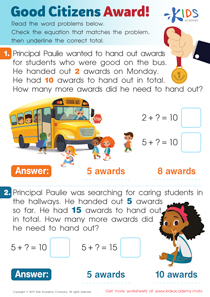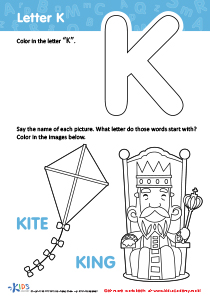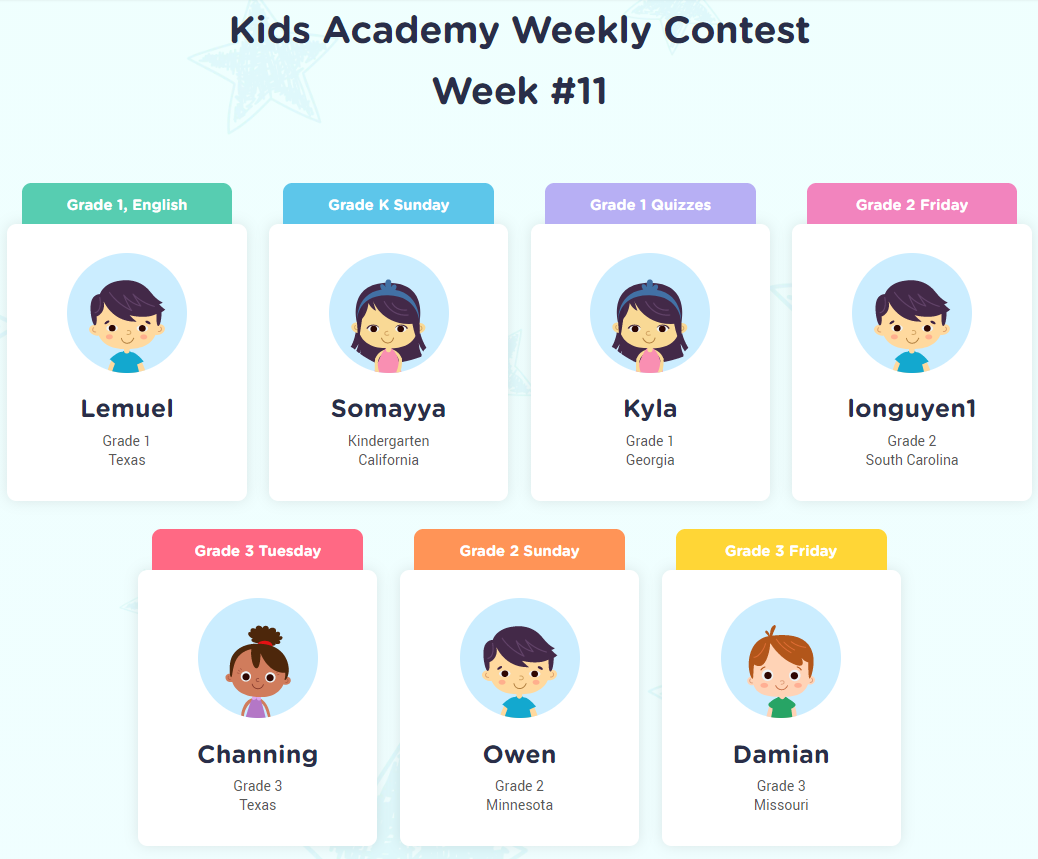Normal One More and One Less Quizzes for Ages 4-5
2 results
2 filtered results
Clear all filters2 filtered results
-
From - To
Discover the joy of numbers with our "Normal One More and One Less" interactive assessment quizzes, specially designed for children aged 4-5. Engaging and educational, these quizzes are tailored to check and enhance young learners' understanding of basic numerical concepts in a fun, interactive way. As children navigate through the quizzes, they'll receive immediate feedback, reinforcing their knowledge and encouraging them to explore further. Perfect for early learners, our quizzes make mastering the concepts of 'one more' and 'one less' an enjoyable adventure. Embark on this numerical journey and watch your child's confidence in math grow!
Understanding the concept of numbers and their relationships is a foundational skill in early childhood education. The "Normal One More and One Less" interactive quizzes are specifically designed for children ages 4-5, aiming to bolster their numerical literacy in a fun and engaging way. These quizzes are not just another educational tool; they are a bridge to a deeper understanding of numerical relationships for young learners.
At the core of these quizzes is the principle of incremental learning. By focusing on the concepts of "one more" and "one less," children begin to grasp the basic building blocks of arithmetic – addition and subtraction. This early exposure is crucial, as it sets the stage for more complex mathematical concepts they will encounter as they progress in their studies. The age-appropriate design of the "Normal One More and One Less" quizzes ensures that children are learning in an environment that is both challenging and supportive.
For children aged 4-5, the interactive nature of these quizzes is particularly beneficial. At this developmental stage, children are naturally curious and eager to explore. The quizzes leverage this innate curiosity by presenting numerical concepts through interactive elements that require active engagement. Whether it's dragging and dropping, selecting the correct answer from multiple choices, or even voice-activated responses, the quizzes are designed to keep young minds engaged and focused.
Moreover, the "Normal One More and One Less" quizzes are structured to foster a positive learning environment. Feedback is immediate and encouraging, allowing children to understand their mistakes and celebrate their successes in real-time. This not only boosts their confidence but also encourages a healthy attitude towards learning and problem-solving. For many children, the transition from getting an answer wrong to understanding why the right answer is correct is where the real learning happens. These quizzes are tailored to facilitate this transition in a supportive way.
Another significant benefit of the "Normal One More and One Less" quizzes is their adaptability. Recognizing that children learn at different paces, the quizzes are designed to accommodate varying levels of understanding and proficiency. As children master the concept of "one more" and "one less," the quizzes can adjust in complexity, providing a continuous challenge and encouraging ongoing learning and development.
Incorporating technology into early childhood education through interactive quizzes offers an additional advantage. It prepares children for the digital world they are growing up in, making them comfortable with using technology as a tool for learning. This early familiarity can enhance their ability to adapt to more advanced educational technologies and methodologies in the future.
In conclusion, the "Normal One More and One Less" interactive quizzes for ages 4-5 are more than just an educational resource. They are a catalyst for early numerical understanding, a builder of confidence, and a guide for making learning enjoyable. By engaging children in active participation, providing supportive feedback, and adapting to their individual learning needs, these quizzes play a pivotal role in laying the foundation for a lifetime of learning and discovery in mathematics and beyond.












